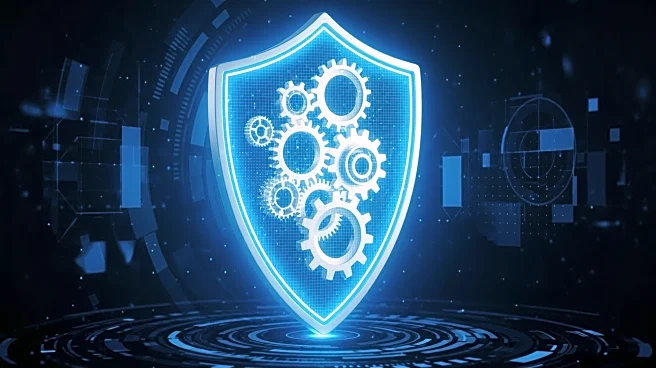What's Happening?
Australia's spy chief, Mike Burgess, has raised concerns about Chinese hackers probing critical infrastructure networks in Australia and the United States. During a financial regulation conference in Melbourne, Burgess highlighted the activities of the Volt
Typhoon and Salt Typhoon groups, which are linked to Chinese government intelligence and military. These groups have been involved in cyber-enabled espionage, targeting telecommunications networks and pre-positioning for potential sabotage. Burgess emphasized the low-cost, high-impact nature of cyber espionage, which is appealing to foreign intelligence agencies due to its deniability and scalability. The Chinese government has denied involvement in hacking or cyber espionage.
Why It's Important?
The warning from Australia's spy chief underscores the growing threat of cyber espionage and the vulnerability of critical infrastructure in both Australia and the United States. The activities of state-sponsored hacking groups like Volt Typhoon and Salt Typhoon highlight the need for robust cybersecurity measures to protect national security interests. The potential for sabotage and espionage poses significant risks to industries reliant on telecommunications and infrastructure networks. This development may prompt governments to reassess their cybersecurity strategies and international cooperation to counteract such threats.
What's Next?
In response to these threats, Australia and its allies may increase their cybersecurity defenses and intelligence-sharing efforts to mitigate risks posed by state-sponsored hacking groups. The exclusion of high-risk vendors from critical infrastructure projects, such as Australia's decision to exclude Chinese firms from its 5G network, may become more common. Governments may also consider implementing stricter regulations and policies to safeguard against cyber espionage and sabotage.
Beyond the Headlines
The ethical implications of cyber espionage and the role of state-sponsored hacking in international relations are significant. As countries navigate the complexities of cybersecurity, the balance between national security and diplomatic relations becomes increasingly delicate. The long-term impact of these activities may lead to shifts in global alliances and cybersecurity policies.

















